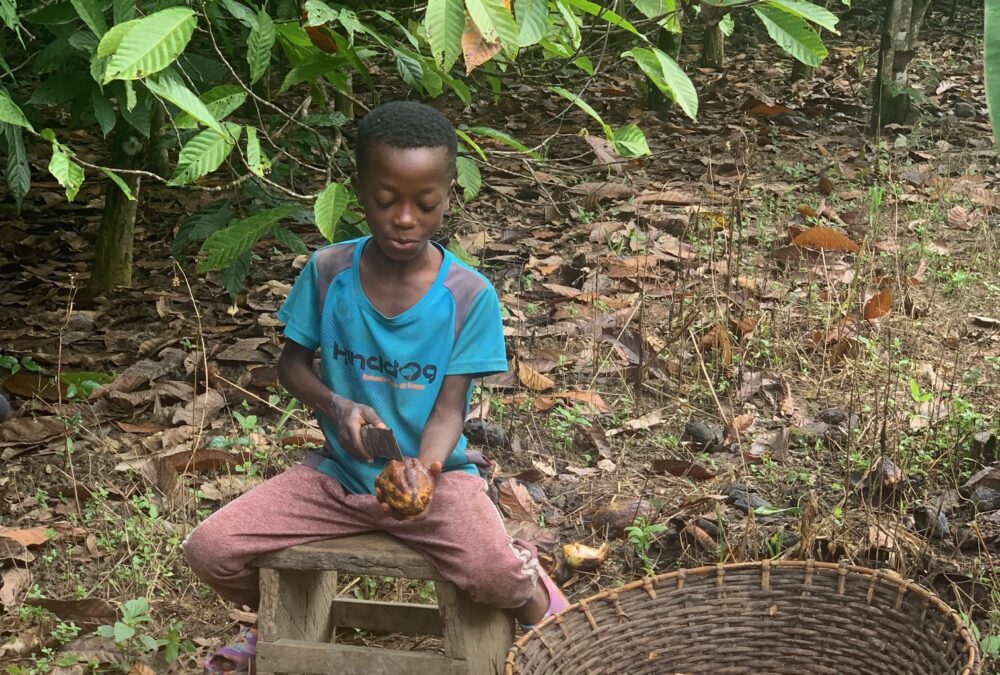
Honor the Harkin Engel Protocol
In 2001, Cargill publicly acknowledged the problem of forced child labor in the cocoa industry and committed to eliminating it and the other “worst forms” of child labor in the production of chocolate. As a part of the “Harkin Engel Protocol,” Cargill agreed to a “comprehensive, six-point problem-solving approach along with a time-bound process for credibly eliminating the use of abusive child labor in cocoa growing.”
In 2010, the ambition was dramatically lowered to a reduction of “the worst forms of child labor” in Côte d’Ivoire and Ghana by 70 percent. But even that low bar was not met. According to a U.S. Department of Labor-funded study, the number of children harvesting cocoa in Côte d’Ivoire and Ghana has increased since the commitment, not decreased.

Honor the New York Declaration on Forests
In 2014 at the United Nations Climate Summit, Cargill’s CEO stood on stage beside the UN Secretary General and pledged to eliminate deforestation from Cargill’s supply chain by 2020, with the goal of halving the world’s rate of deforestation by 2020 and ending it by 2030. But from the time of the pledge until the deadline of 2020, rampant and even illegal deforestation by Cargill continued (See A Grain of Truth report).
In June 2019, a year after being fined by the Brazilian government for their role in illegal deforestation, Cargill publicly abandoned the goal. In the years since the signing of the New York Declaration on Forests, tropical deforestation has increased by 40%.

Honor the COP 26 Statement of Purpose
In November 2021, at the UN Climate Change Conference in Glasgow (COP 26), Cargill once again grabbed headlines by committing to “halting forest loss associated with agricultural commodity production and trade.” Significantly, in the announcement, Cargill expanded its commitment to include the protection of other critical natural ecosystems, in addition to forests.
But according to a statement from a group of Cargill’s largest customers, the plans for carrying out the commitment are so weak that they would prevent Cargill’s customers from meeting their climate and deforestation commitments if they continued to source from Cargill.

Promises to Keep
On November 27, 2023, Cargill announced a commitment to eliminate deforestation and land conversion in Brazil, Argentina, and Uruguay by 2025.This commitment by Cargill is potentially a huge and long-awaited step forward for the planet and the Indigenous communities who depend on these ecosystems. Unfortunately, given Cargill’s long track record of breaking previous commitments – it is hard not to be skeptical.



